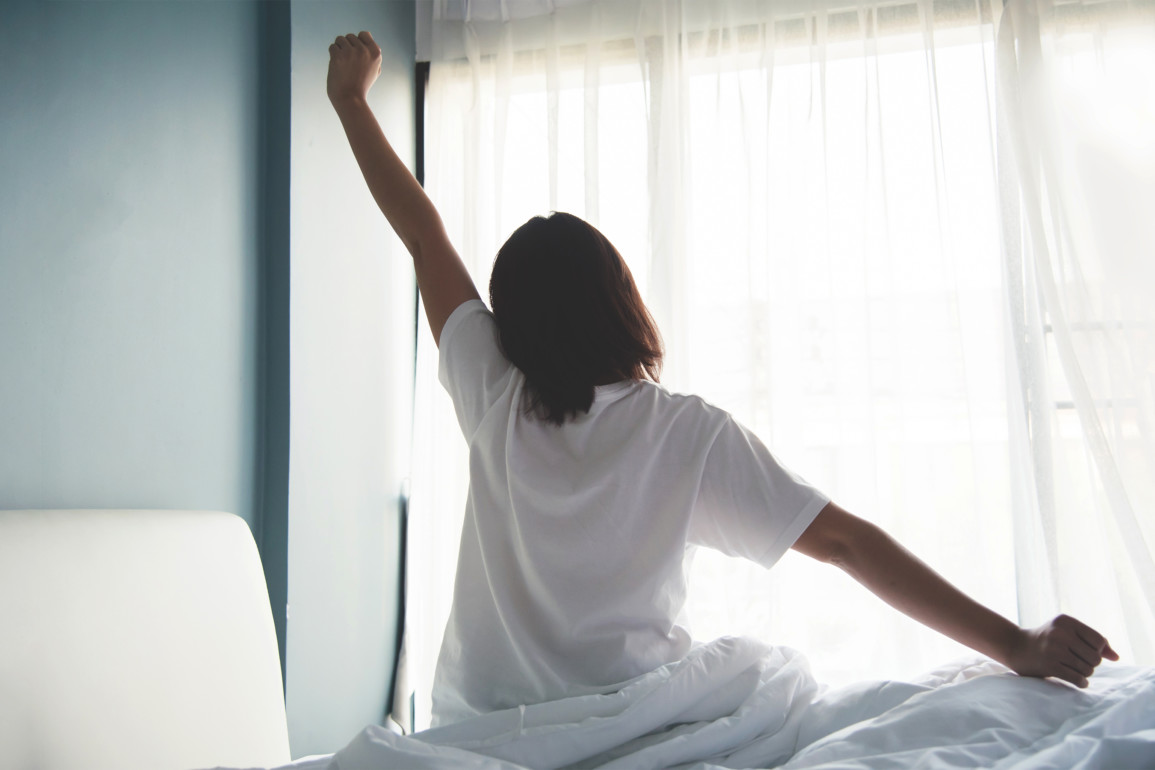Struggling to sleep?
An extra dose of sunlight could be just what the doctor ordered.
Most people with insomnia and common sleeping disorders see the light as the enemy of a good night’s rest. After all, it’s way tougher to get to sleep in a bright room. Additionally, it’s harder to stay asleep with illuminating morning sunlight through windows.
However, there’s more to the relationship between sunlight and sleep than most people realize. If you want to get your circadian rhythm in check, then it’s worthwhile investing in some blackout blinds or a sleeping mask for the evenings.
On the other hand, you need to ensure that you’re being exposed to enough light during the day too! The amount of light you’re exposed to each day has a direct impact on your sleep cycle.
What’s more, it’s worth noting that sunlight benefits extend to better mood, improved health, and exposure to essential vitamins.
Here’s everything you need to know about waking up with the sun.

Morning sunlight: The benefits of early morning light
Unless you live in certain parts of the world where midnight sun and winter nights are common, there’s a good chance you take morning sunlight for granted. It’s easy to underestimate just how vital the sun is for keeping your sleep-wake cycle in check.
Of all the external factors that influence your circadian rhythm, light is probably the most powerful. The circadian rhythm is created from signals sent to your brain and body based on external and internal cues. So, how does sunlight affect your circadian rhythm?
Well, when you wake up and see the sun shining outside, your brain tells your body that it’s time to be awake. That means melatonin (the hormone responsible for sleep) is switched off, and other hormones take its place — keeping you focused and awake.
When the light you’re exposed to during the day begins to fade, new signals are sent to your brain and body to tell them it’s time to turn melatonin production on again, preparing you for sleep.
Your exposure to early morning light is how you keep your circadian rhythm ticking along smoothly each day. Unfortunately, most of us are struggling to keep our sleeping routines in check.
According to a survey by YouGov, more than half of people believe that sunlight regulates sleep. Around 63% of those people also said that exposure to sunlight affects productivity. However, despite this, we’re all spending an increasingly large amount of our time indoors.
The average American spends 87% of their time indoors, while Brits spend an average of 90% of their time locked in their office, home, or another location. Ultimately, we’re not getting nearly enough exposure to the sun to reap the benefits of sunlight and sleep.
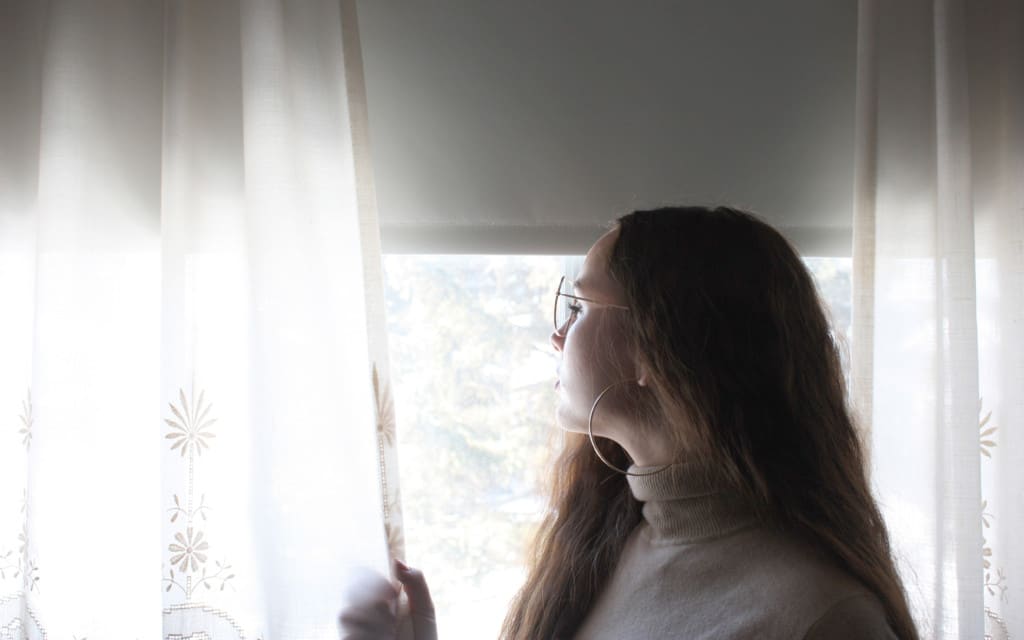
The sun and sleep: Circadian disorders
Way back in the early days of man, we were all waking up with the sun each morning, whether we liked it or not. We didn’t have alarm clocks and schedules to control our days like we do now.
The morning sun rays told you it was time to get up, and the dangers of darkness meant that most of us returned to shelter, when the sun went down.
However, as the planet has evolved and the way that human beings live has changed, our biological clocks aren’t as easy to synchronise anymore.
It’s increasingly easy for the circadian rhythm to be affected by everything from waking up late one day, to staying indoors rather than getting outside. The result is a slew of circadian rhythm disorders.
Lack of exposure to early morning light creates various problems with the way we regulate our daily rhythm. Travelling is a big culprit in this setting, and you definitely know the most common form of circadian rhythm disorder, jet lag.
When you cross time zones, you won’t be waking up with the sun and falling asleep when it goes down — at least not when you’re getting used to a time zone for the first day. That means you’ll end up with fatigue, sickness, and other unwanted symptoms.
You don’t have to travel around the world to experience the issues of missing out on early morning sun either. For example, if you’re doing shift work where you’re forced to stay awake all night, your biological rhythm will fall out of sync.
The longer you spend outside of a natural rhythm of sleeping and waking, the more symptoms you’ll experience. The most common symptoms of circadian rhythm disorders are severe fatigue and daytime drowsiness. However, disruption to the internal body clock also causes issues like nausea, depression, mood changes, and cardiovascular problems.
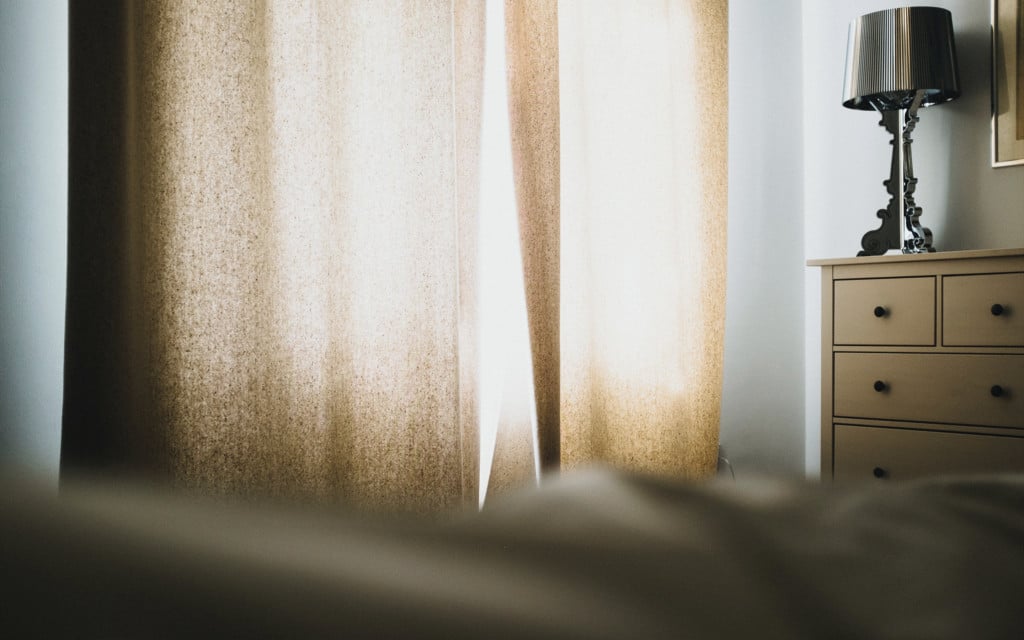
Why we should all be waking up with the sun
Getting the right amount of sleep at the correct times isn’t easy.
Even if you know you should be soaking up the early morning sun, you might not be able to choose the hours in which you need to be awake for work or family commitments.
However, if the only thing stopping you from adjusting your sleep cycle is the fact that you’ve fallen into bad habits, now could be the ideal time to make a change.
Studies find that building your schedule around getting as much natural light into your day as possible, is a great idea.
Using the Pittsburgh Sleep Quality Index, one report found that shift workers were able to achieve a better quality of sleep if they exposed themselves to sunlight throughout the day.
Compared to participants who worked in windowless offices, people with exposure to natural light during the day slept an average of 46 more minutes each night.
At its core, the connection between sunlight and sleep comes down to the critical link between melatonin and sunlight. While most of us think of the sun’s rays as yellow beams of light, the truth is that the sun emits full-spectrum light.
That means that when you step outside each morning, you’re covered with all kinds of light — including the blue wavelengths in your technical devices that may keep you awake at night.
When you’re waking up to sunlight, you’re giving your brain the visual notification that it’s time to increase cortisol production and lower melatonin production.
Cortisol and melatonin in the brain deliver very different responses. While melatonin tells you that it’s time to go to sleep, cortisol wakes you up by pumping up adrenaline levels. While excessive levels of cortisol are unfortunate, the substance is necessary for you in healthy amounts.
Cortisol might be known most commonly as the “stress” hormone, but it also energizes your mind and body and gets you ready to handle the day. Studies have shown that low levels of cortisol in the morning and higher levels at night (often caused by stress and anxiety) negatively impact sleep.
This is why some people who wake up later or stay all day indoors get that “wired, yet tired” feeling at night. If you spend a lot of time indoors and out of the sun, you may also find that it’s a lot harder to wake up in the morning.
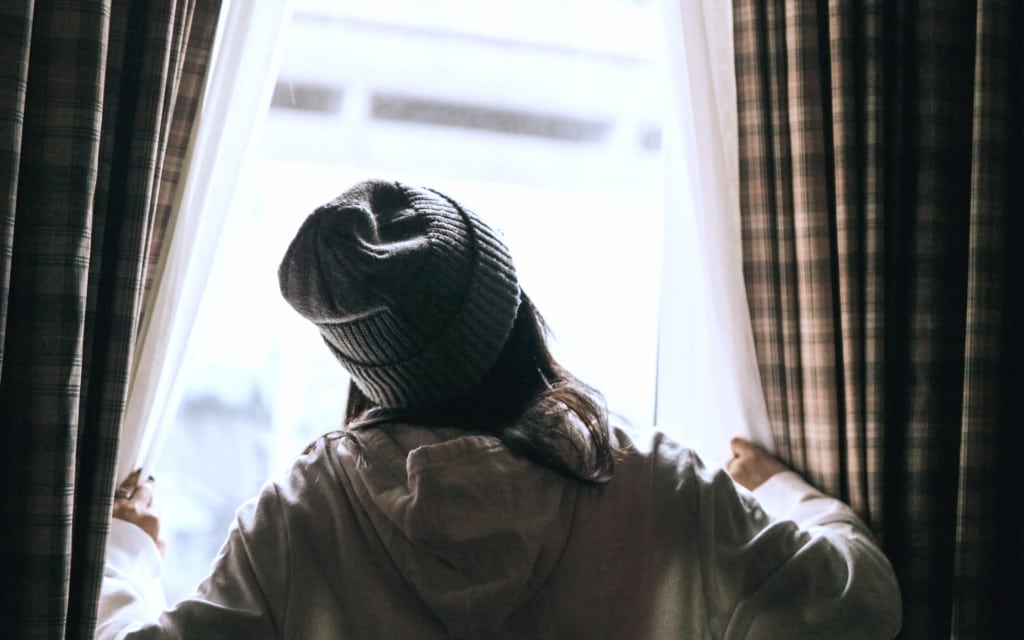
The benefits of sunlight on sleeping patterns
Still not sure why you should be getting plenty of early morning sun?
Well, let’s take a closer look at the benefits of sunlight.
Exposure to sunlight, in general, is excellent for the mind and body. For instance, spending time in the sun is how your body produces vitamin D. Vitamin D is essential for maintaining the right levels of calcium and phosphate required for good bone health.
Additionally, research has found that proper exposure to sunlight is crucial in protecting against depression, obesity, certain kinds of cancer, and various neurodegenerative diseases.
Morning sunlight provides a host of benefits aside from better sleep — accessing an extra dose of light each day boosts your vitamin D production.
Vitamin D keeps your immune system working correctly. Healthy amounts of vitamin D are associated with stronger bones, stable hormone levels and reduced risks of certain cancers too.
Additionally, sunlight triggers the release of hormones in your brain. You already know about melatonin and sunshine and the importance of cortisol.
However, sun exposure is also essential for increasing the amount of serotonin in your brain. Serotonin is the hormone most associated with inducing calm, happiness, and other positive feelings. The more serotonin you have in your system, the less likely it is for sleep anxiety to keep you awake.
It’s not just the hormone-boosting light levels that make the morning sun rays beneficial either. As important as light cycles are for improving the circadian rhythm, temperature cycles are valuable too.
Experts examining the sleep habits of cultures around the world found that temperature was a standard variable for every population. When the sun goes down, and it’s cold outside, we want to stay in and snuggle up under a blanket for some extra sleep.
When the sun comes up in the morning, complete with its lovely warming rays, we’re more likely to step outside and get on with our day. The warming infrared rays from the sun tell your body that the day has arrived and its time to get to work.
To fully absorb the heat and light of the sun, however, you’re going to need two things. First, you need to get outside. There’s no way to harness the benefits of the sun like vitamin D, vitamin A, and infrared warmth if you’re locked in a room, and your curtains are closed.
Within an hour of waking up, it’s a good idea to go outside and meet the sun. If possible, spend at least 35 minutes to 40 minutes outside in the morning.
A good way to boost your exposure to sunlight, particularly during the summer months, is to walk or cycle to work instead of driving. By the time you arrive in your destination, you’ll have consumed your daily dose of light.
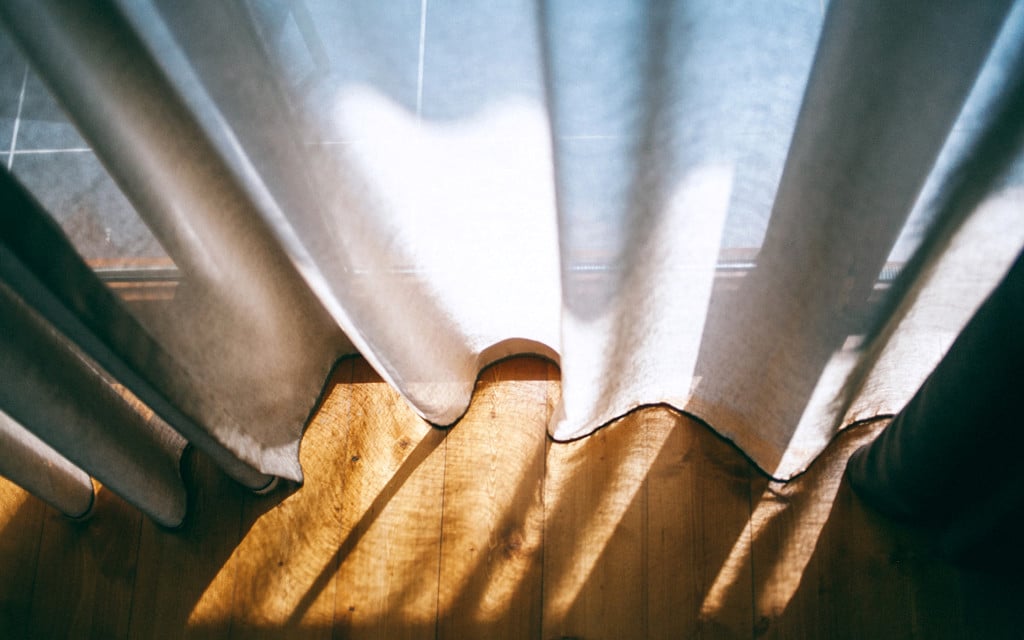
Waking up to sunlight: How to get the right exposure
Before you rush outside, eager to improve your sleep with a little extra sunlight, hold on. Sunlight can be dangerous in large doses — particularly without the right protection.
You’ll need to make sure that you’re applying sunscreen, and that you know what you should be exposing to the sun to improve your chances of a stronger circadian rhythm.
Although your entire body needs to soak up the warmth of the sun for the best benefits, it’s light exposure to the retinas that tends to matter the most.
During the night, when you’re asleep, your retinas are turned off. When you wake up, sunlight into the eye sends a direct wakeup call to the part of your eye called the Retinal Pigment Epithelium. The RPE tells your anterior pituitary gland (in the brain) to release hormones.
One thing that makes a big difference to the signaling processes associated with sunlight and sleep is your consumption of vitamin A. When light hits your eye, a protein called melanopsin in your eye uses vitamin A to detect that light.
The same protein relies on vitamin A to tell the brain that it’s daytime. If you’re deficient in vitamin A, then you can’t transfer signals properly, which means that your circadian rhythm may still suffer, even if you’re waking up to sunlight like you’re supposed to.
The good news is you can increase your levels of vitamin A by getting plenty of the right foods into your diet. For instance, cheddar contains a hefty dose of 10% of your DV per serving, while you’ll get 8% of your DV from a hard-boiled egg. Other good foods for vitamin A include:
- Sweet potatoes: 204% of your DV
- Winter squash: 127% of your DV
- Kale: 98% of your DV
- Turnip greens: 61% of your DV
- Carrots: 44% of your DV
When you’ve got your vitamin A levels in check, make sure you go outside early each morning, without anything covering your eyes. That means no glasses or contact lenses until later in the day (when you reach work, or when you need to see to make your journey to work).
At a minimum, if you can’t avoid wearing glasses or contacts, keep your face in the sunlight for as much time as possible each day.

How to get more early morning light
As you can see, early morning light is an important component in managing your circadian rhythm. Even if you don’t live in a particularly sunny part of the world, you should still be trying to soak up the morning sun rays as often as possible.
Of course, excessive sun exposure comes with its risks too. Too much sun, particularly without the right protection, can cause sunburns, skin damage, and even an increased risk of skin cancer.
For those worried about the dangers of sun exposure and people who don’t get a lot of natural light in their part of the world, the most common solution is light therapy.
Light therapy is a strategy that uses a high-powered light (usually around 10,000 lux) to counteract the symptoms of lack of sunlight and sleep disorders.
Doctors and sleep professionals will be able to direct you towards a light therapy box that’s suitable for you. Some people even use this kind of treatment to tackle issues like seasonal affective disorder (SAD).
Other ways to improve your results when using sunlight for sleep include:
Strive for consistency
Try to make sure that you’re stepping out into the sun at the same time each day whenever possible. Even on the weekend, get up at the same time and get outside as early as you can.
Spend time outside
Even on cloudy days, spend as much time in the morning sunlight as you can. This will still improve your chances of a better night’s sleep. What’s more, daily exposure to sunlight will improve your mood and health too.
Limit artificial light
While natural light improves your sleeping patterns, artificial light can increase melatonin production and mess up your sleeping patterns. Keep your exposure to artificial lights at a minimum. Make sure you avoid blue light before you go to sleep too.
Improve your sleep hygiene
Don’t forget to take additional steps to improve your sleep hygiene besides increasing your exposure to sunlight for sleep. For instance, it’s a good idea to remove anything from your bedroom that may be distracting, such as alarm clocks and other noisy devices. It may also be helpful to start a routine that helps you to relax each night.
Remember, although we know that sunlight regulates sleep, we also understand that some sleeping disorders need more in-depth treatment than regular exposure to the sun.
If you’re concerned about chronic insomnia or anything else that might be preventing you from getting the rest that you need, you may need to speak to a doctor.
A medical professional will be able to decide whether you need light therapy, or whether you’d be better suited to sleeping medication, cognitive behavioural treatment, or something else entirely.

Don’t underestimate the importance of sunlight
For the most part, the answer to “Is it good to wake up to sunlight” is yes!
A healthy dose of sunshine each morning helps to set you up for a wonderful and productive day. Regular exposure to the sun improves your mood, gives you access to crucial vitamins, and regulates your circadian rhythm.
Figuring out how the relationship between sunlight and sleep works for you is one of the best ways to overcome your sleep issues once and for all and live a happier life.
However, it is essential to be cautious when you’re unlocking the benefits of sunlight. For instance, make sure that you don’t spend too much time outside without taking steps to protect yourself against the negative impact of the sun’s rays.
Wear plenty of sunscreens, and don’t stare directly at the sun. Protect your eyes with sunglasses if you need to.
Additionally, don’t just assume that all of your problems can automatically be solved by more morning sunlight. While waking up with the sun can be a great way to tackle sleeping problems for some people — it’s not the right solution for everyone. Speaking to a doctor is a good way to make sure that you’re getting the correct treatment.
Siestio. Sleep Matters.
General advice disclaimer
This article contains general tips and advice. However, no diet or exercise program should be started without consulting your physician or other industry professional first. For more information read our full disclaimer here.

